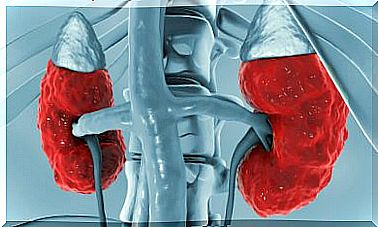How Does Allergy Develop?
Many of us will have experienced the misfortune of having an allergic reaction. These types of reactions are experiencing a continuous increase in their prevalence, since it is estimated that 30 to 40% of the world population has suffered them at some point. How does the allergy develop?
It’s not all bad news, as annoying as it may be, allergy could hide a key evolutionary meaning for humans. It is an immune reaction of the body against a substance that is generally harmless to the host, which is manifested by characteristic signs and symptoms when it is exposed to it.
The antibodies of the immune system of the person suffering from this pathology recognize harmless agents from the environment as potential dangers and act accordingly to expel them. This generates inflammation of different degrees in the paranasal sinuses, the skin, the digestive system, among others.
This is how the existence of allergies makes us wonder: why does our own defense system boycott us in harmless situations? To learn more about it, below we detail more about the role of allergies in human evolution and its development,
Why does allergy develop?
The true purpose of allergic reactions continues to be a topic of debate and research today. The hygiene hypothesis proposes that allergies have spread globally due to the lack of exposure to real pathogens.
A study published in Plos Computational Biology maintains that proteins found in elements of daily contact with humans are similar to those of body parasites.
The lack of activity of our immune system in contact with this type of harmful living beings could make it detect any other similar signal as a potential danger, causing the reaction in question.
The previously named study provides evidence to support this hypothesis:
- The research team monitored the laboratory reaction of antibodies to a protein from a species of parasite, Schistosoma mansoni. The protein in question was very similar to one found in birch pollen.
- The same antibodies that were responsible for eliminating the parasite’s protein were those that reacted to the birch pollen.
These results, even simple, yield a great deal of information. It is possible that the lack of real alarms causes our immune systems to make its own.

An answer perhaps not so accidental
We could stay with this possible explanation, as it sounds convincing and seems scientifically proven. Even so, there are other currents that defend different ideas.
Some studies in this article in the Scientific American magazine suggest that these types of reactions are not at all accidental. They propose that allergy could protect us from toxins present in the environment:
- In one of the studies, mice were exposed to small doses of venom and, after several weeks, to more concentrated doses of it. Some mice were only inoculated with the concentrated dose.
- Mice that had been exposed to small doses were found to have a much greater immune response compared to the concentrated dose than those that did not receive initial inoculation.
- Exposure to an initial dose caused previously inoculated mice to develop allergen-specific antibodies, preparing them for more severe future scenarios.
What could the previously described mean?
Interpreting the results, it is not unreasonable to think that through vomiting, shortness of breath and other symptoms, our body is preparing us for situations of real danger.
Our immune system could be preparing for other more severe future reactions and, at the same time, communicating to us that we try to avoid these allergic substances.
This theory suggests that an allergy develops as an evolutionary mechanism in humans. Based on experience with less harmful agents, we could have learned to avoid higher risk situations as a species. In addition, our immune system would train itself against serious dangers with these small allergic episodes.

Why does allergy develop? An unanswered question
As we have been able to observe in this space, there are diverse theories regarding the emergence of allergies. There are no certainties or falsehoods, but rather different ways of approaching a global pathology. Still, the true cause and development of allergies remains unknown.









